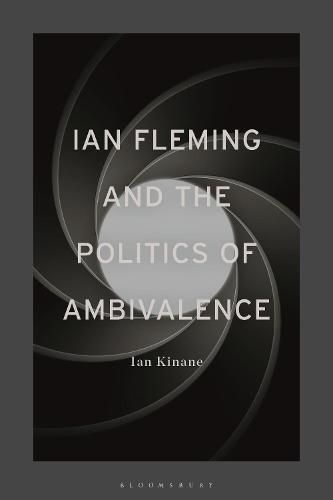Readings Newsletter
Become a Readings Member to make your shopping experience even easier.
Sign in or sign up for free!
You’re not far away from qualifying for FREE standard shipping within Australia
You’ve qualified for FREE standard shipping within Australia
The cart is loading…






Previously considered an avowed nationalist, this book explores how Ian Fleming’s writings and his representational politics contain an implicit resistance to imperial rhetoric. Through an examination of Fleming’s Jamaica-set novels Live and Let Die, Dr. No, and The Man with the Golden Gun, as well as the later film adaptations of these novels, Ian Kinane reveals Fleming’s deep ambivalence to British decolonisation and to wider Anglo-Caribbean relations. Offered here is a crucial insight into the public imagination during the birth of modern British multiculturalism that encompasses broader links between Fleming’s writings on race and the representation of early British-Jamaican cultural relations. By exploring the effects of racial representation in these popular works, Kinane connects the novels to more contemporary concerns regarding migration and the ways in which the misrepresentation of cultures, races, and peoples has led to fraught and contentious global geo-political relations as figured in the fictional icon, James Bond.
$9.00 standard shipping within Australia
FREE standard shipping within Australia for orders over $100.00
Express & International shipping calculated at checkout
Previously considered an avowed nationalist, this book explores how Ian Fleming’s writings and his representational politics contain an implicit resistance to imperial rhetoric. Through an examination of Fleming’s Jamaica-set novels Live and Let Die, Dr. No, and The Man with the Golden Gun, as well as the later film adaptations of these novels, Ian Kinane reveals Fleming’s deep ambivalence to British decolonisation and to wider Anglo-Caribbean relations. Offered here is a crucial insight into the public imagination during the birth of modern British multiculturalism that encompasses broader links between Fleming’s writings on race and the representation of early British-Jamaican cultural relations. By exploring the effects of racial representation in these popular works, Kinane connects the novels to more contemporary concerns regarding migration and the ways in which the misrepresentation of cultures, races, and peoples has led to fraught and contentious global geo-political relations as figured in the fictional icon, James Bond.